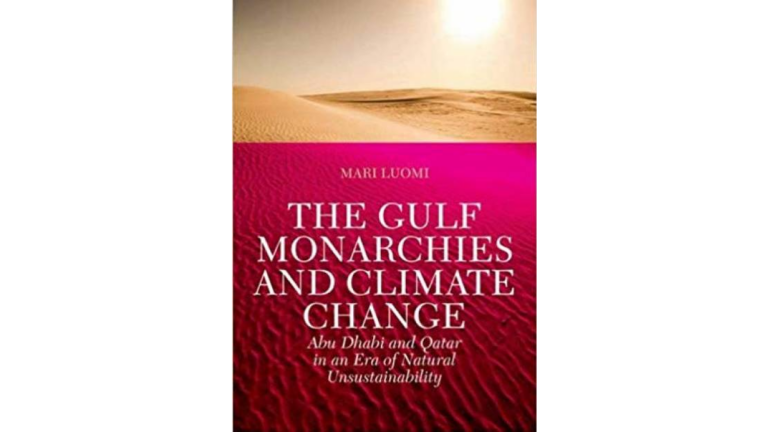The Gulf Monarchies and Climate Change: Abu Dhabi and Qatar in an Era of Natural Unsustainability

This book examines whether oil and natural gas-dependent rentier monarchies can keep their natural resource use and the environment in balance. Studying the cases of Abu Dhabi and Qatar, Mari argues the Gulf monarchies have already reached their “natural sustainability” limits. A result of booming economies, the Gulf Cooperation Council states’ surging electricity and water demand have exerted unexpected pressures on domestic energy supply. Several states are now dependent on natural gas imports. Groundwater resources are dwindling, food imports are high and rising, and the environmental impacts of the past decade’s economic growth are undeniable. Simultaneously, consolidation of climate change on the international agenda has created new uncertainty for local rulers whose survival is largely underpinned by a ruling bargain sustained by export revenues from fossil fuels. Domestic natural resource consumption and climate change are putting unprecedented pressure on the region. Thus, the Gulf’s fragile desert environment is under stress, as is state power, wealth and stability. This book reveals how Abu Dhabi, an emirate of the United Arab Emirates, and Qatar have responded to these natural resource-related pressures, particularly climate change, and how their responses are linked with elite legitimacy strategies and the “natural unsustainability” of their political economies.
2012 Hurst Publishers
Mari Luomi was a Post-Doctoral Fellow at the Center for Regional and International Studies, Georgetown University, Qatar. 2011-2012.